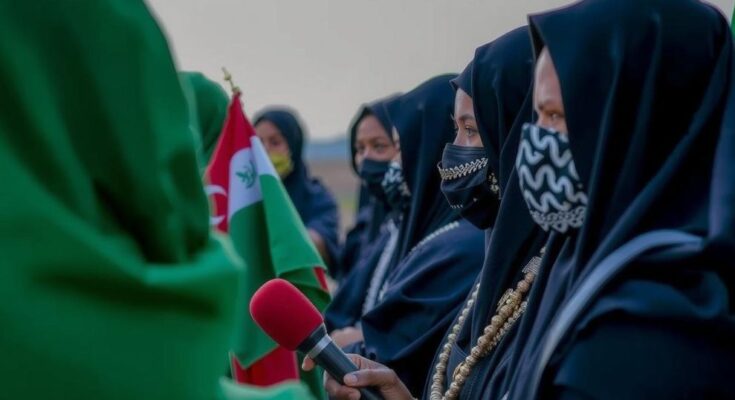Libya’s Interior Minister proposed compulsory veiling for women and girls, raising human rights concerns, especially against women. The government aims to enforce morality through a ‘morality police’, restricting personal freedoms and furthering gender inequality while neglecting existing crises of abuse and repression.
In a bold move that raises alarms for human rights in Libya, the Minister of Interior, Emad al-Trabulsi, recently announced stringent measures to enforce compulsory veiling for women and girls, some as young as nine. This initiative, couched in the guise of “morality,” signifies a troubling escalation of repression against those who do not conform to prevailing social norms. Plans include establishing a ‘morality police’ to monitor public interactions, demanding women seek male guardian permission for international travel, and imposing scrutiny on personal choices like clothing and hairstyles. Such actions not only deepen existing gender inequalities but also directly contravene Libya’s commitment to uphold international human rights standards. Amnesty International’s Libya researcher, Bassam Al Kantar, condemned these proposals, outlining how the government is amplifying the oppressive atmosphere that forbids individual expression. The proposed regulations represent more than mere social etiquette; they embody an invasion of privacy and personal freedom. The urgency of addressing this can be likened to extinguishing embers before they spark a raging fire, as Libya continues grappling with arbitrary detentions, disappearances, and systemic torture under its broader human rights crisis. The call to respect and uphold freedom of expression, association, and assembly echoes through analysts and activists alike, demanding a reexamination of the GNU’s responsibilities. Amidst this tumultuous backdrop, Emad al-Trabulsi’s stance captivates attention not only for its implications on women’s rights but for its chilling reminder of the state’s continuous flirtation with authoritarianism. The backdrop of impunity for militia leaders and an entrenched culture of violence on Libyan soil only intensifies concerns about the government’s ability to actually prioritize human rights over control. In a reign of oppressive policies masked as virtue, Libya stands at a crossroads, compelled to either succumb to surveillance and control or fight for the liberty of its citizens. To chart a course informed by justice and respect for human rights, the GNU must abandon its restrictive tendencies and confront the multifaceted human rights crisis haunting its populace.
The statement by Emad al-Trabulsi came during a press conference on November 6, where he outlined controversial measures aimed at enforcing stricter morality codes within Libyan society. The proposed laws are part of a pattern of abusive governance that Amnesty International has documented, illustrating how authorities have failed to hold accountable militias implicated in serious crimes, thus perpetuating a cycle of violence and impunity. Furthermore, Emad al-Trabulsi previously led the Public Security Agency militia, known for its grave human rights violations against refugees and migrants, raising concerns over his ability to enact just policies.
The proposed measures by Libya’s Minister of Interior signal a severe restriction on personal freedoms, particularly for women and girls, under the pretext of enforcing morality. Such actions not only threaten to deepen gender discrimination but also highlight the acute human rights violations unfolding in the country. The call for the government to abandon these regressive policies emphasizes the urgent need for Libya to address the broader human rights crisis rather than intensify oppressive measures against its citizens.
Original Source: www.amnesty.org



